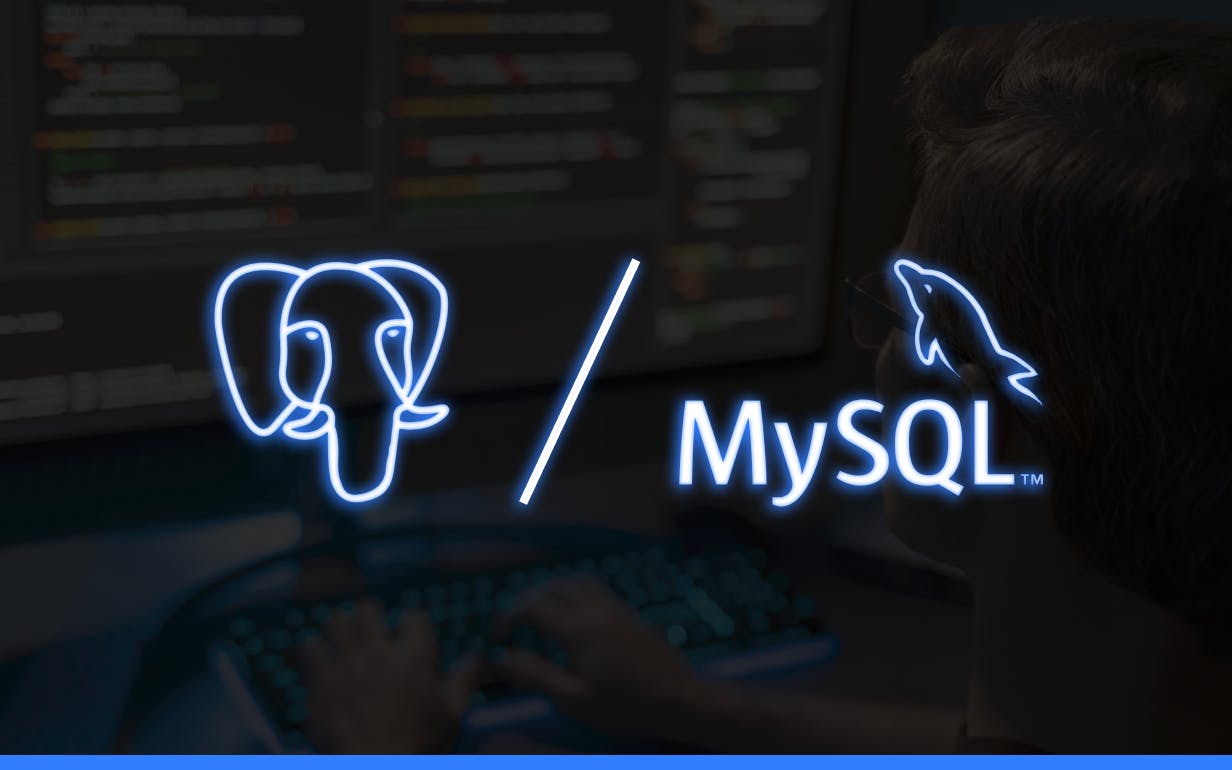Leverage Turing Intelligence capabilities to integrate AI into your operations, enhance automation, and optimize cloud migration for scalable impact.
Advance foundation model research and improve LLM reasoning, coding, and multimodal capabilities with Turing AGI Advancement.
Access a global network of elite AI professionals through Turing Jobs—vetted experts ready to accelerate your AI initiatives.
Leverage Turing Intelligence capabilities to integrate AI into your operations, enhance automation, and optimize cloud migration for scalable impact.
Advance foundation model research and improve LLM reasoning, coding, and multimodal capabilities with Turing AGI Advancement.
Access a global network of elite AI professionals through Turing Jobs—vetted experts ready to accelerate your AI initiatives.
PostgreSQL vs MySQL: What’s the difference?
All kinds of businesses require a robust infrastructure for handling their data. The organization’s size, sector, and clientele affect the data requirements.
The right database management system (DBMS) provides better control over the data streams. And so, the choice of DBMS influences a lot of factors and processes of the business.
Open-source database management systems are a practical choice in today’s competitive world. Open-source DBMS can optimize storage and access, and modify data flow.
This post shares a detailed PostgreSQL vs MySQL comparison to help you pick the right DBMS for your organization.
1. PostgreSQL vs MySQL Applications:
PostgreSQL is an enterprise-level solution that is ideal for large-scale organizations. The open-source object-relational database management system (ORDBMS) has multiple feature-packed tools. MySQL is a relational database management system (RDBMS) suitable for simple processes.
- Choose MySQL if your business requires simple OLAP or OLTP processes. MySQL offers a single-threaded simple approach to data storage. MySQL is useful for read-heavy workloads, with ‘read-only memory’ access. Large-scale simultaneous read/write operations may compromise speed in MySQL.
- Choose PostgreSQL if your business must operate and access multiple databases simultaneously. As an object-relational DBMS (ORDBMS), PostgreSQL is applicable for complex data flows. PostgreSQL hosts a robust setup for complicated Online Application Processing (OLAP) and Online Transaction Processing (OLTP).
2. PostgreSQL vs MySQL Performance:
PostgreSQL has better performance than MySQL. When it comes to solving complex SQL queries, PostgreSQL supersedes MySQL. But, to ensure better performance, PostgreSQL requires detailed configuration efforts by developers.
- Choose MySQL if you need a ‘single-process,’ one thread per connection. MySQL is perfect if the business has a small-scale setup for its DBMS. MySQL works for simple web-based apps and projects requiring a database for linear data processing. Hire MySQL developers to implement simple data flows within your business.
- Choose PostgreSQL if there is a risk of data corruption due to concurrent data processing tasks. PostgreSQL has adequate memory allocation (almost 10 MB) for each new client. pSQL creates a new OS process for each connection. Read/write operations in PostgreSQL require special optimization. PostgreSQL would be the best choice for large, enterprise-grade applications that require data warehousing and other high-level features.
3. PostgreSQL vs MySQL Development:
Implementing a PostgreSQL system is more difficult than a MySQL-based DBMS. Similarly, finding developers that are proficient in PostgreSQL is tough.
On the other hand, MySQL is more popular and has a simple learning curve. MySQL also has a larger community of developers due to its simplicity.
- Choose PostgreSQL if you can hire multiple experienced database administrators for your setup. Hire PostgreSQL developers if the data structures require complex query processing.
- Choose MySQL if your project requirements are simple. As MySQL is basic and popular, finding developers for your projects is easy. Hire MySQL developers if you need to save time, money, and resources to train and onboard DBMS designers.
4. PostgreSQL vs MySQL Syntax:
Both databases offer different support for various data types and syntax. MySQL offers support for limited data types. PostgreSQL supports a larger set of instructions and features.
- MySQL only offers support for basic JSON (JavaScript Object Notation). MySQL is a relational database management system. MySQL supports only standard SQL data types.
- PostgreSQL is an object-relational database management system. PostgreSQL offers support for JSON, (NoSQL) XML, etc. This DBMS supports arrays, ‘hstore’ data type, and customizable user-defined data types. The system also complies with the Boolean data type, IP-address data type, and temporal types like time, date, timestamps, and intervals. UUID (Universally Unique Identifier) data type can be useful for your processes. UUID creates a special ID within the system. The UUID is unique compared to the conventional ‘serial’ data type. All of these data types are exclusive to PostgreSQL.
- PostgreSQL offers CASCADE support. With Postgres, users can create partial indexes, and create indexes in a non-blocking manner. Developers can implement MVCC without the read-locks, which is not possible with MySQL. PostgreSQL can engage multiple CPUs or cores with parallel query operations.
5. Materialized views:
PostgreSQL offers the feature of materialized views. MySQL lacks this interesting feature. PostgreSQL allows you to physically store the response of a query in a VIEW (virtual table). You can easily access the data from the view function itself. Materialized views are useful to view and update that data periodically. Thus, PostgreSQL allows businesses to view compiled data before storing it on the servers.
Which is faster PostgreSQL or MySQL?
PostgreSQL is a faster DBMS when database administrators need to deal with:

PostgreSQL
- Multiple data types
- Large data sets
- Complicated SQL queries
- Simultaneous read-write operations
- Accessing multiple databases
MySQL is a faster DBMS when admins have to integrate:

MySQL
- Read-only operations
- Simple and shorter lines of code
- A smaller team of developers
- Linear data flow
Which is better PostgreSQL or MySQL?
Carefully consider the MySQL vs PostgreSQL comparison to pick the best option for your business.
Your choice of the open-source DBMS would ultimately depend on your exact requirements. The nature of your business, data flows, and your team of software developers will eventually dictate your choice. The scale, complexity, budgets, and data processes will also influence your choice of DBMS.
Remember that implementing either of these systems would require you to hire experienced software engineers. PostgreSQL would need a great team of developers, given the sheer complexity, features, and syntax. PostgreSQL developers need to maintain the delicate balance between speed and data intensiveness.
MySQL would also require you to set up a team of proficient developers. As MySQL is a basic DBMS, expert database developers will be needed for MySQL projects. Well-trained teams of MySQL developers can integrate advanced features into MySQL databases.
Turing can help you hire skilled software developers with an excellent track record of implementing robust database management systems. For more information, visit our Hire page!
Kedar Kanekar
Want to accelerate your business with AI?
Talk to one of our solutions architects and start innovating with AI-powered talent.



